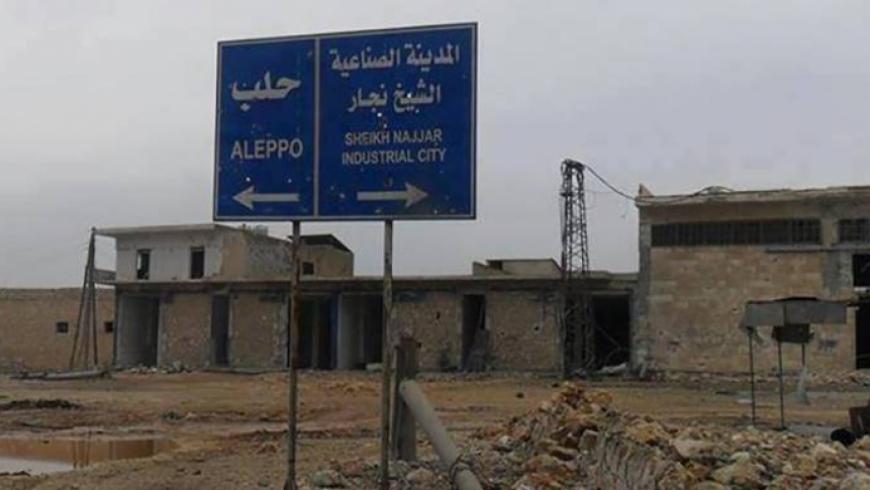Since the Syrian regime took control of the industrial zone in Sheikh Najjar, northeast of Aleppo in mid-2014, its government has continued to call on industrialists to return to operate their factories without rehabilitating and maintaining industrial infrastructure, through providing electricity, fuel, and raw materials. This comes after the area witnessed nearly two years of battles in Syria’s second-largest industrial city.
The government’s recent decision to raise the price of a ton of fuel to 1 million and 25 thousand Syrian pounds made it worse.
Clearly, the government is in confrontation with Aleppo’s industrialists. A few months ago, the Ministry of Economy and Foreign Trade issued a resolution allowing the import of fabrics for all importers, which leads to the destruction of this sector of the Syrian industry, and the closure of textile factories, dye, and yarn factories. This comes at a time when industrialists were waiting for government support to compensate them for price differences between domestic and foreign clothing, similar to the experience of Turkey and Egypt.
Read Also: Syria Fuel Prices Hike: Negative Impact on Industry, Consumer Products
Today, there are questions in the mind of the Syrian industrialist, including: Why is the government putting spanners in the works of local industry? And for who?
It is not unlikely that government decisions in this context, under the guidance of the leadership of the 4th Division loyal to the Iranian Revolutionary Guard, to introduce Iranian companies or import their goods, thereby reviving Iran’s economy, which is dilapidated by U.S. sanctions, at the expense of Syrian industrialists, at a time when Syria is not immune to Western sanctions either.
The regime’s decisions put us in front of two questions: are its decisions, as a result of confusion and the lack of a strategy that contributes to reducing successive sanctions and finding solutions for industrialists? Or is it a methodology to give back part of the favor to the Iranian Revolutionary Guard and its economic wing, for standing by the regime in its war against the Syrian people?
This article was translated and edited by The Syrian Observer. The Syrian Observer has not verified the content of this story. Responsibility for the information and views set out in this article lies entirely with the author.


